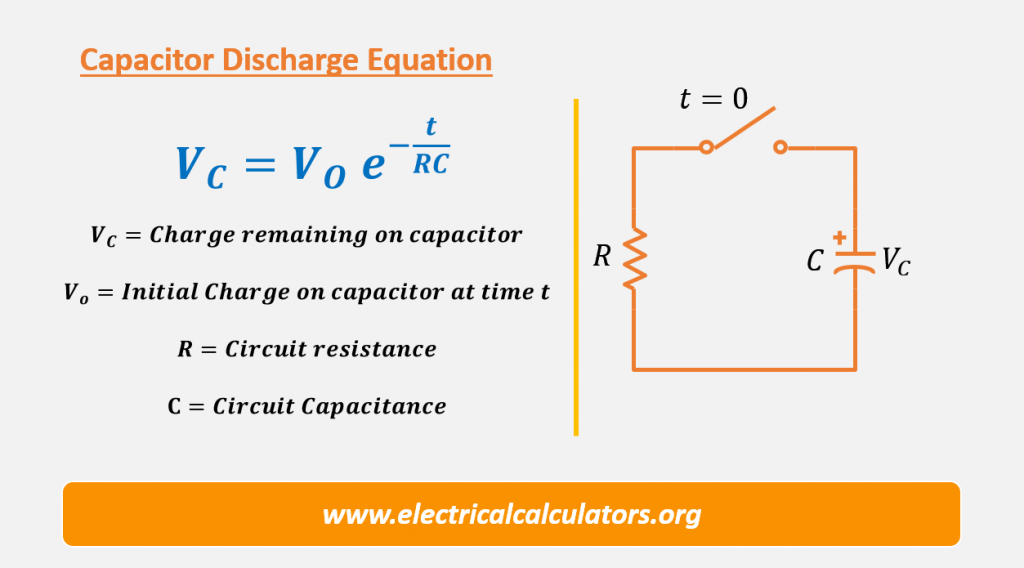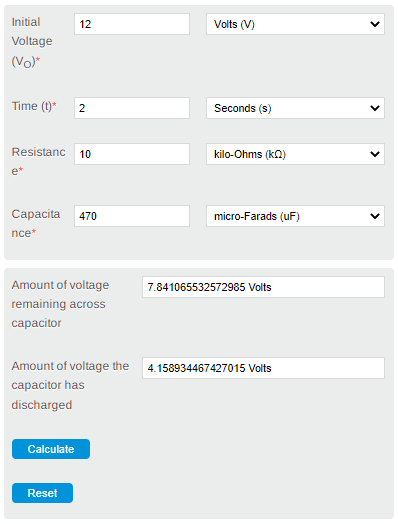The capacitor discharge and charge Calculator is an online calculation tool that calculates the voltage discharged by the capacitor and the voltage remaining across the capacitor. The Capacitor Discharge Calculator calculates the voltage that a capacitor with a capacitance, of C, and a resistor, R, in series with it, will discharge to after time, t, has elapsed.
List of Contents
Capacitor Charge/Discharge Formulas

Solved Examples
Example 1
Statement: A capacitor having a value of 470 µF is charged to an initial voltage of 12 V and then discharged through a 10 kΩ resistor. If the capacitor has been discharging for 2 seconds, calculate the voltage across the capacitor.
Solution:
Given data
V₀ = 12 V R = 10 kΩ = 10,000 Ω C = 470 µF = 0.00047 F t = 2 s
Using the capacitor discharge equation, we have:
V = V₀e^(-t/RC) V = 12 e^(-2/(10,000 x 0.00047)) V ≈ 7.84 V
Example 2
Statement: A capacitor having a value of 220 µF is charged to an initial voltage of 6 V and then discharged through a 10 kΩ resistor. If the capacitor has been discharging for 3 seconds, calculate the voltage across the capacitor.
Solution:
Given data
V₀ = 6 V; R = 10 kΩ = 10,000 Ω; C = 220 µF; t = 3 s
Using the capacitor discharge equation, we have:
V = V₀e^(-t/RC) V = 6* e^(-3/(10,000 x 0.00022)) V ≈ 1.53 V
Practical Applications of Capacitor Charging/Discharging
Because of its charging/discharging properties and features the capacitor finds hundreds of applications in the field of electrical and electronics engineering.
- Flash photography
- Power supplies
- Timing circuits
- Electric motors
- Electronic flashers
- Radio tuning
- Surge protectors
